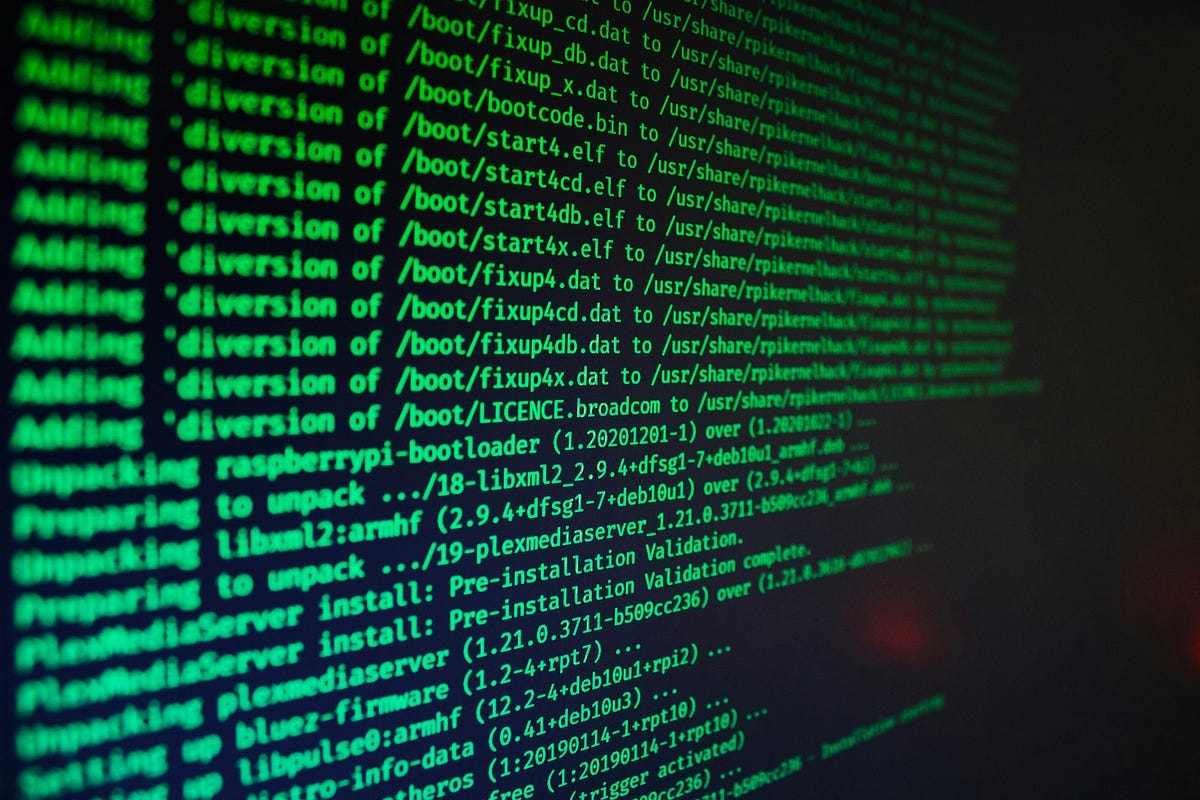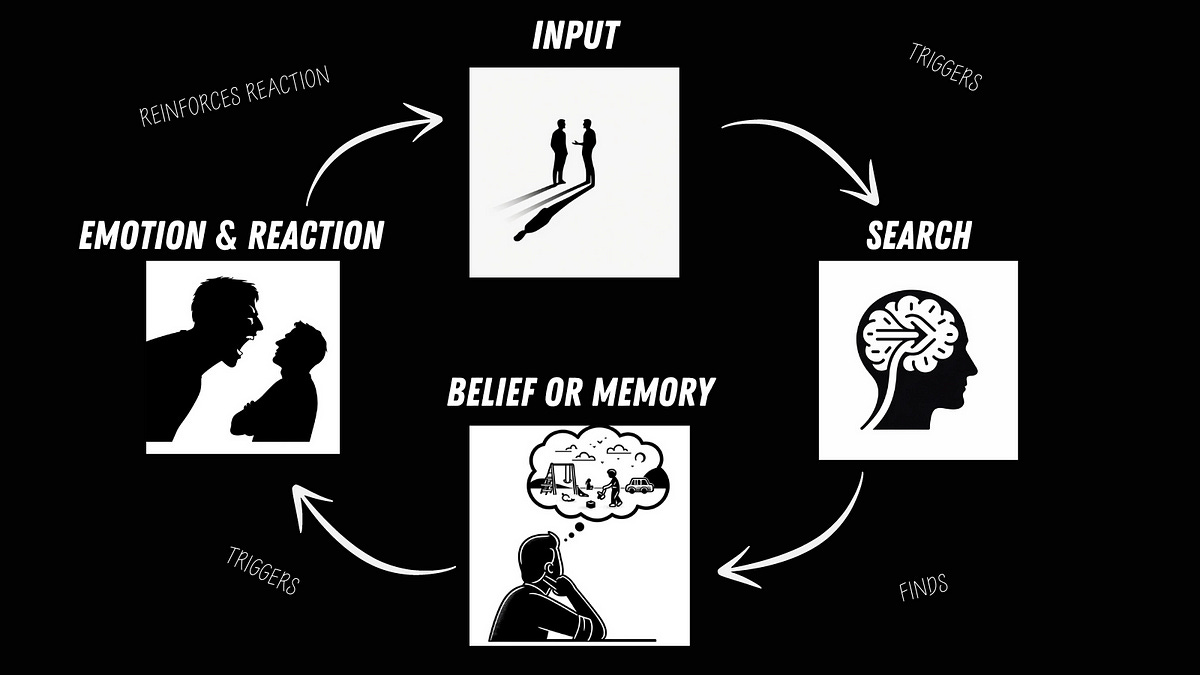People Don't Make You Angry
You Make You Angry

People make me angry — is what I used to think until I read this:
WE choose our emotions.
My gut reaction: Nah-uh! If he didn’t do (fill in the blank) — I wouldn’t be angry right now.
If she didn’t say (fill in the blank) — I wouldn’t be so annoyed right now.
People are causing me to feel all these negative emotions.
This is not a me problem. It’s a people problem.
Spoiler alert: this is a YOU problem.
Take a deep breath, grab your coffee (or wine — no judgment), and let’s dissect this, shall we?
Meet Your Subconscious Mind: The Unsung Hero Behind the Scenes

First you need to understand that there are two parts to your mind: conscious mind and subconscious mind.
The conscious mind is like the RAM (random access memory) in a computer: it handles short-term memory and manages the tasks that are immediately in progress. This is how you work through a deliberate act.
The subconscious mind is your hard drive: the long term storage. It stores every bit of data you’ve ever absorbed, holding every embarrassing, painful, and joyous moment from your life’s blooper reel.
Your conscious mind will dip into the plethora of the data in the subconscious to help it navigate throughout the day — this is automatic and at lightning speed.
Do you find yourself trying to remember how to lift your right foot while balancing on your left to take a step forward? Me neither — the subconscious is always running in the background and on autopilot getting you through the day and keeping you alive (respiration, circulation, homeostasis etc.)as an added bonus.
As someone who often ends up doing the lion’s share of chores around the house and feeling as appreciated as an old sock, I’ve come to realize the subconscious mind deserves a trophy — or at least a thank you card.
The Emotional Merry-Go-Round: Why You Keep Landing on Same Emotions
Understanding our minds’ structure helps explain why our emotional reactions can feel so automatic and inevitable.
We spend our childhood collecting data and experiencing things that we store in our subconscious memory. Every time we have an event that creates a strong emotion due to a belief we hold — we store it.
Our library grows as we age and we continue to pile onto the beliefs hanging out in there.
There is a predictable cycle to how your emotions surface which is based on connection to that library of beliefs.
Here’s an overview:
→Something happens
→Subconscious taps into lifetime data
→Finds an associated belief/memory
→Generates a familiar emotion
→Causes a repeated behavior
→Reinforces the belief and behavior
This is why you get triggered by the same things over and over and react the same way. Your reactions become habitual because your subconscious, like a tape recorder, loops familiar responses to triggers. Each repeated reaction reinforces these patterns, hitting ‘replay’ on your least favorite emotional track.
Everything in the universe is essentially neutral — we assign meaning to it all. I know it’s hard to view hurricanes or piles of dirty laundry as neutral, but they really are. We just tend to dislike them because of the havoc they wreak on our world or our free time.
If someone says something you do not prefer, the reason you react to it is because it triggers a belief that does not serve you.
Read that again.
Maybe what they are saying makes you feel like your autonomy is threatened — maybe it perpetuates your belief that you aren’t worthy.
If someone calls you fat and you get triggered — a part of you believes that you are fat and that being fat is not okay.
You likely have a memory tucked away of the first time someone made a comment about your weight, which left you puzzled or feeling down.
If you did not view yourself in a negative way, another persons words have no weight over you and hence you would not react with a negative emotion.
So, it wasn’t their comment that got under your skin — it was your own belief, popping up like an unwanted ad, that brought up those feelings.
Essentially, you’re letting this outdated belief run your emotional show.
Imagine if your Netflix account only played reruns of your least favorite episodes — annoying, right? Time to change the channel cause you hold the remote. Remember this the next time a not-so-nice comment comes your way.
If you catch yourself reacting and building up emotion, pause and reflect on this question:
What must I believe to be true to allow this to elicit negative emotion in me?
If you can drill into the negative belief at the root and replace it with something that feels better — you will change your reaction.
This is how you reprogram your subconscious mind.
Eventually you will create that distance between an event and the selection of an emotion.
Placing the power of your emotions onto others is giving all your power away. No one can make you feel anything. You allow those feelings to take hold.
Are these feelings helping the cause? — likely not.
But the cause is with you. Once you can take ownership over this process and reclaim your power, you are one step closer to creating a much better emotional life for yourself.
Reclaiming Your Emotional Power: A DIY Guide
Feeling a negative emotion? Here’s what you do:
Pause: Catch yourself in the act of getting riled up.
Interrogate: Ask yourself, “What must I believe to be so riled up about this?”
Rewrite: Swap out that crusty old belief with something fresher, something that serves you better — I am enough. I can be happy without that. I am not the reason my parents divorced.
Rinse and repeat.
It’s like updating your old software.
It might be glitchy at first, but soon, you’ll be running smoother than ever.
Your subconscious doesn’t argue — it just follows orders. So make sure you’re giving it commands that improve your life, not ones that replay your worst hits.
Stay cool, calm, and collected. Or at least pretend until you make it — your subconscious won’t know the difference.
Claiming ownership of your emotions is the first step towards freeing yourself from emotional instability and reclaiming your power.



